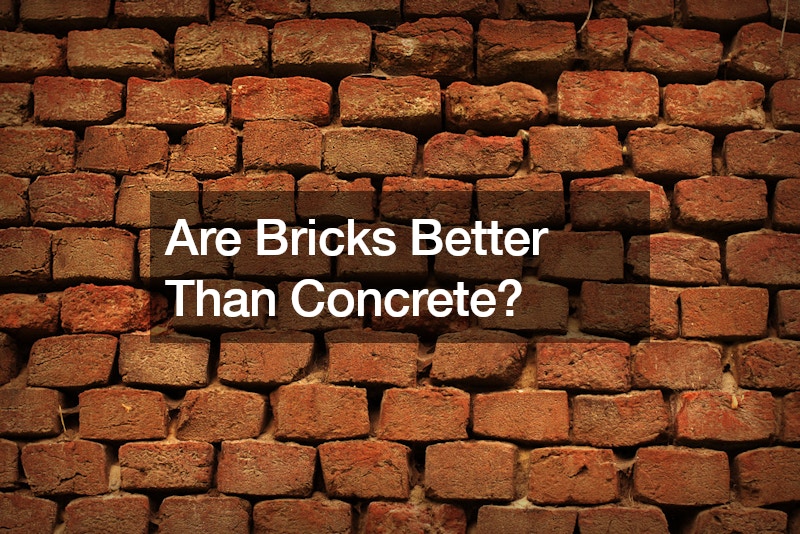

When planning a construction project, choosing the right building material is crucial. Two popular options are bricks and concrete, each with distinct advantages and characteristics. This article will explore the differences between brick vs concrete to help you determine which material might be better suited for your needs.
Durability and Longevity
Bricks are renowned for their durability and longevity. Made from natural clay and shale, bricks can withstand extreme weather conditions, including intense heat, heavy rains, and freezing temperatures.
With proper maintenance, brick structures can last over a century. On the other hand, concrete is also highly durable and can last a long time if properly maintained. However, concrete is more susceptible to cracking due to temperature changes and settling over time. While both materials are durable, bricks generally have a longer lifespan and require less frequent repairs.
Aesthetic Appeal
The aesthetic appeal is a significant consideration when choosing between brick and concrete. Bricks offer a timeless, classic look that can add charm and character to any structure. They come in various colors, sizes, and textures, providing numerous design options. The natural variations in bricks can create a visually appealing, rustic look that many homeowners and architects prefer. In contrast, concrete offers a more modern and versatile appearance. It can be molded into various shapes and finishes, including smooth, textured, or stamped patterns, allowing for creative designs. However, concrete may lack the warmth and natural beauty that bricks provide.
Environmental Impact
In the brick vs concrete debate, environmental impact is another crucial factor. Bricks are made from natural materials and are often considered more environmentally friendly. They are recyclable and can be reused in various applications. Additionally, the production of bricks typically requires less energy compared to concrete. Concrete, while also recyclable, involves a more energy-intensive manufacturing process. The production of cement, a key component of concrete, contributes significantly to carbon dioxide emissions. Therefore, if sustainability is a priority, bricks may be the more eco-friendly choice.
Maintenance and Repair
Maintenance requirements can also influence the choice between brick and concrete. Bricks are relatively low maintenance, requiring occasional cleaning and inspection for cracks or damage. They are resistant to pests and do not rot, making them a durable option with minimal upkeep. Concrete, while durable, may require more maintenance over time. Cracks in concrete surfaces need to be repaired promptly to prevent further damage. Additionally, concrete can be prone to staining and may require sealing to maintain its appearance.
Cost Considerations
Cost is always a factor in construction projects. Generally, concrete is less expensive than bricks. Concrete can be produced and installed more quickly, reducing labor costs. However, the initial cost savings with concrete may be offset by higher maintenance and repair costs over time. Bricks, while more expensive upfront, offer long-term value due to their durability and low maintenance requirements.
.



